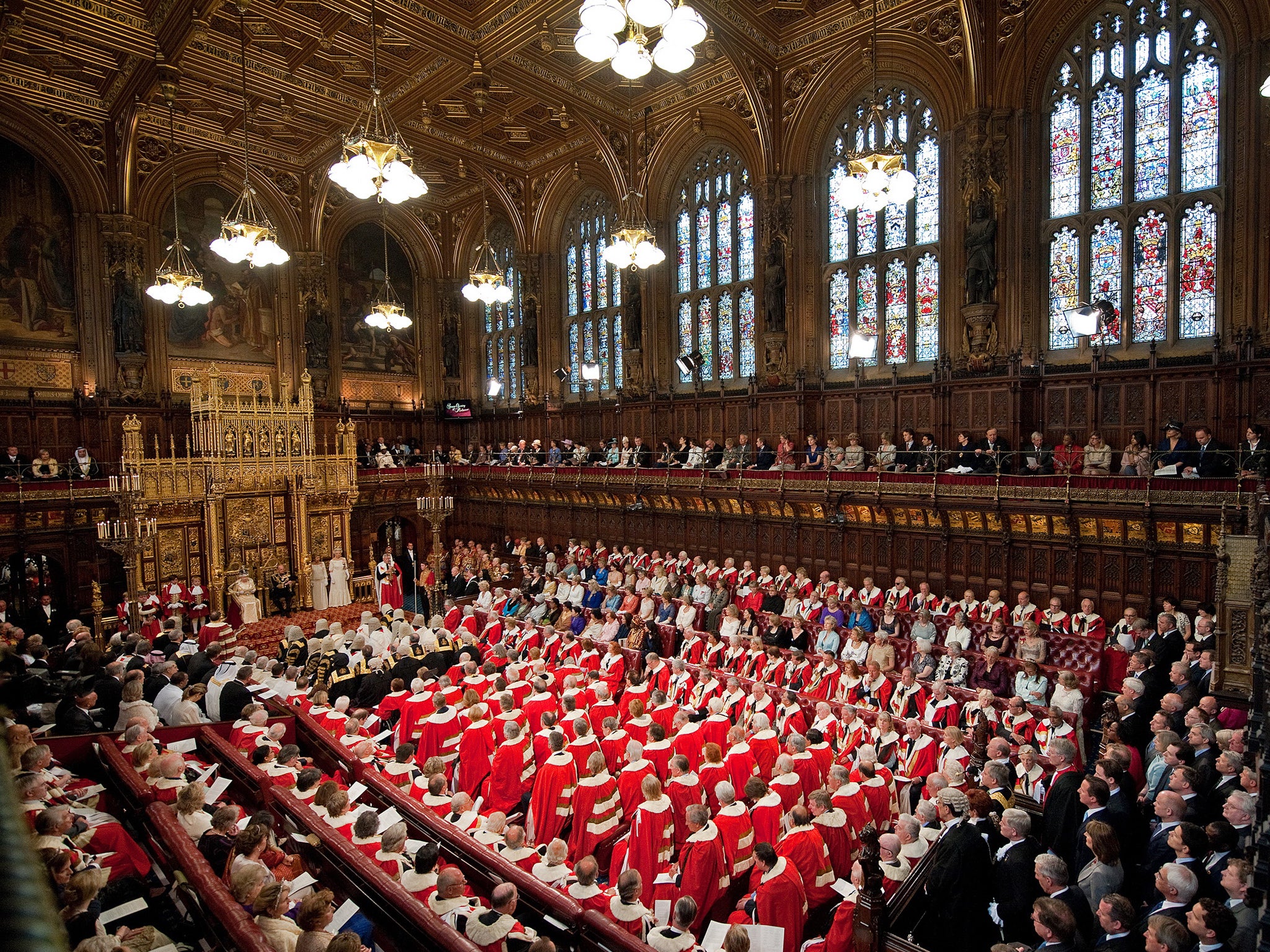Like it or not, the House of Lords plays an important role – Government should remember that
Parliament – both houses – is not there simply to rubber stamp whatever No 10 thinks is the right answer to some extremely complicated questions

The House of Lords is noted for its decorous ways. Unlike the rowdy Commons, it virtually self-regulates its debates without the need for much chairing. It is known for its thoughtful and brave approach to revising legislation, and for being a fund of great wisdom and knowledge.
It has also been the scene of some political rough-house fighting – and there may be more to come. Their lordships have been issued with a thinly veiled threat of political violence from the Government. Last year, as an act of spite after the Lords fulfilled their constitutional function by voting against cuts to tax credits, David Cameron set about ending their power to alter statutory instruments, usually administrative acts brought in under wider enabling legislation. That plan, crafted by senior Tory peer Lord Strathclyde, has now been scrapped.
“The world has changed” is the word form No 10, and so it has. The Government has different priorities now and prime among these is, of course, securing Brexit. The peers have been told not to interfere with this, lest they face reprisals such as a renewed effort to trim their powers.
Of course it would be intolerable if unelected member of the upper house were to frustrate the will of the people as expressed through a referendum or in the elected House of Commons. It would also be intolerable if they were not allowed to fulfil their usual duty to ensure legislation is sound and practicable. So it is with Brexit.
What is becoming apparent is that even a “Great Repeal Bill” to undo for decades worth of integrated lawmaking is not as straightforward as it sounds; and both houses of Parliament are entitled to know what the terms of Brexit will be before approving or amending them. Parliament – both houses – is not there simply to rubber stamp whatever No 10 thinks is the right answer to some extremely complicated questions.
Even if MPs and peers were to be reduced to that status, they cannot approve something that ministers haven’t even been able to formulate. In the hard world of line-by-line scrutiny of legislation and any successor EU-UK treaty, the slogan “Brexit means Brexit” is not good enough.
So the Government should ditch once and for all this crude attempt at blackmail, and scrap the idea that it will keep in reserve a plan to strip peers of their right to veto statutory instruments.
Ministers are correct, if a little condescending, to remind the Lords that they should exercise “discipline and self-regulation” on Brexit and not simply act as some sort of wrecking ball. In return, the Government should itself start to behave with more decorum towards the upper house, and itself display the discipline and self-restraint they ask of others.
Join our commenting forum
Join thought-provoking conversations, follow other Independent readers and see their replies
Comments
Bookmark popover
Removed from bookmarks